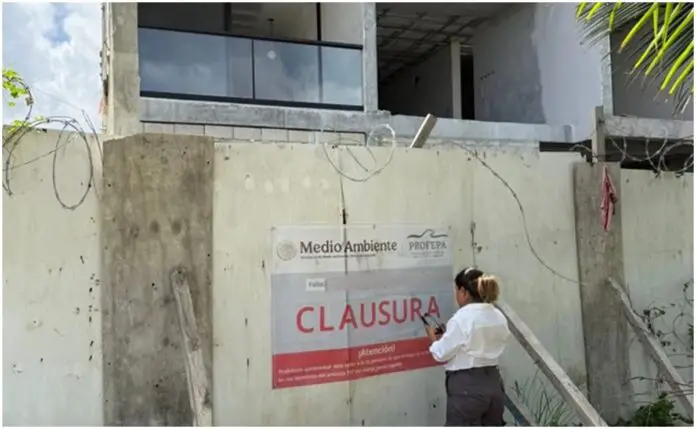In a bid to safeguard the island of Cozumel’s fragile ecosystems, the Federal Attorney for Environmental Protection (Profepa) has temporarily closed two real estate developments that were operating without the necessary environmental permits.
The closures took place on May 20 and 21 after Profepa conducted three inspections in areas considered highly sensitive due to their proximity to federally protected natural habitats. The operation was carried out in conjunction with the National Commission of Natural Protected Areas (Conanp).
One of the developments, “Nativo,” is a three-story building that failed to secure the required environmental impact authorization. As a result, it was shut down temporarily.
The “Nala Cozumel” complex, a six-story building, also fell foul of regulations by not obtaining permission from the Ministry of Environment and Natural Resources (Semarnat) for its construction within an environmentally regulated area.
Both developments are situated in strategic locations crucial to the conservation of biodiversity on Cozumel, an island renowned for its endemic species and coastal ecosystems. The actions taken by Profepa aim to protect these areas, which are vital not only for the preservation of marine and terrestrial species but also for sustaining nature-based tourism activities such as diving and ecotourism.
The closures serve as a warning that no project can be developed outside of environmental law, according to a source from the agency. The General Law on Ecological Balance and Environmental Protection (LGEEPA) mandates Profepa’s efforts to ensure compliance with regulations and strengthen legal protection for protected natural areas.
Profepa will continue its inspections in high-ecological-fragility areas and review compliance with environmental regulations in tourism, real estate, and infrastructure projects. The agency urges developers, investors, and local authorities to respect the necessary procedures regarding environmental impacts and submit their plans for prior assessment by Semarnat when building in areas influenced by Natural Protected Areas (ANPs).
Source: Debate




